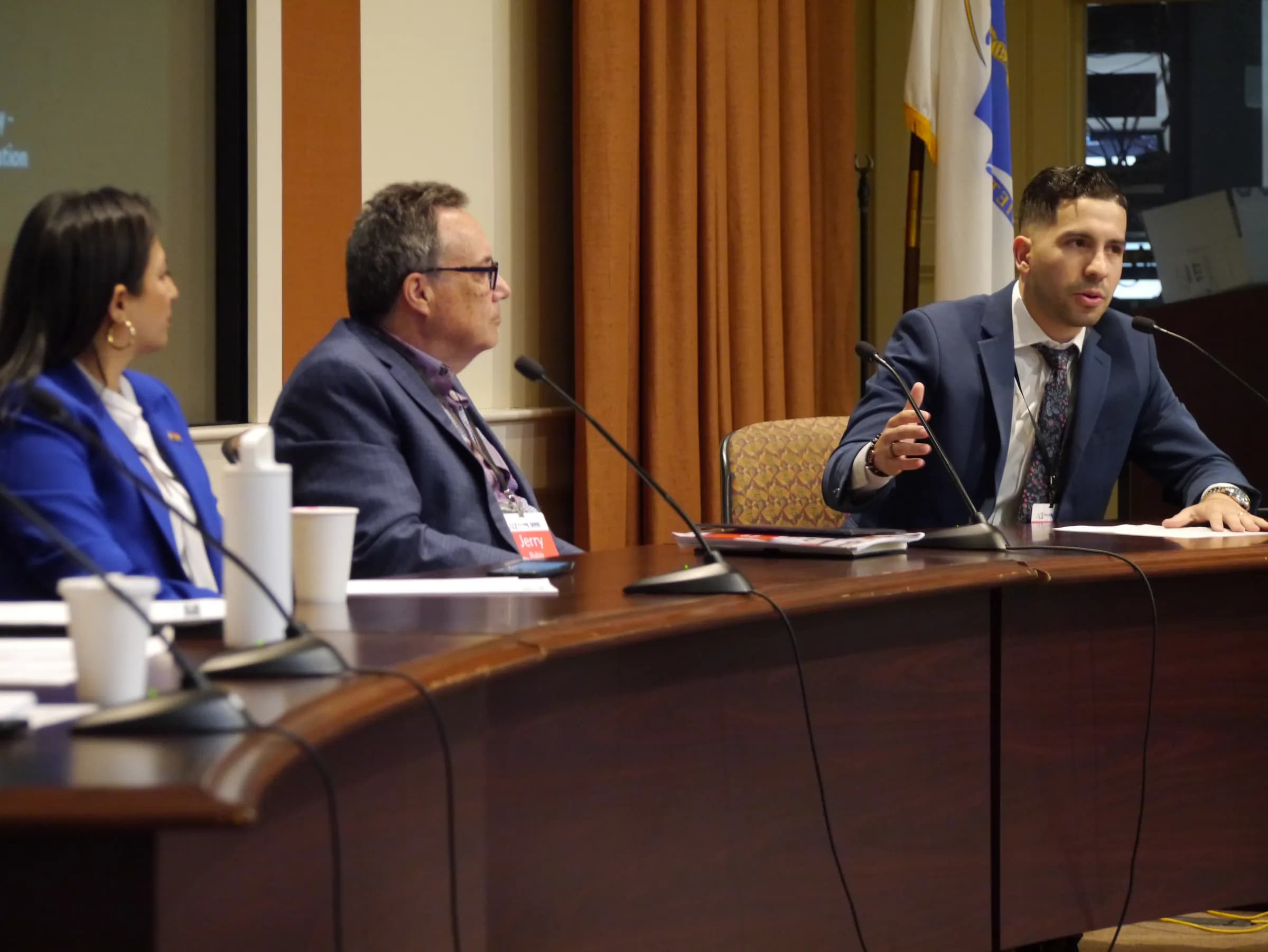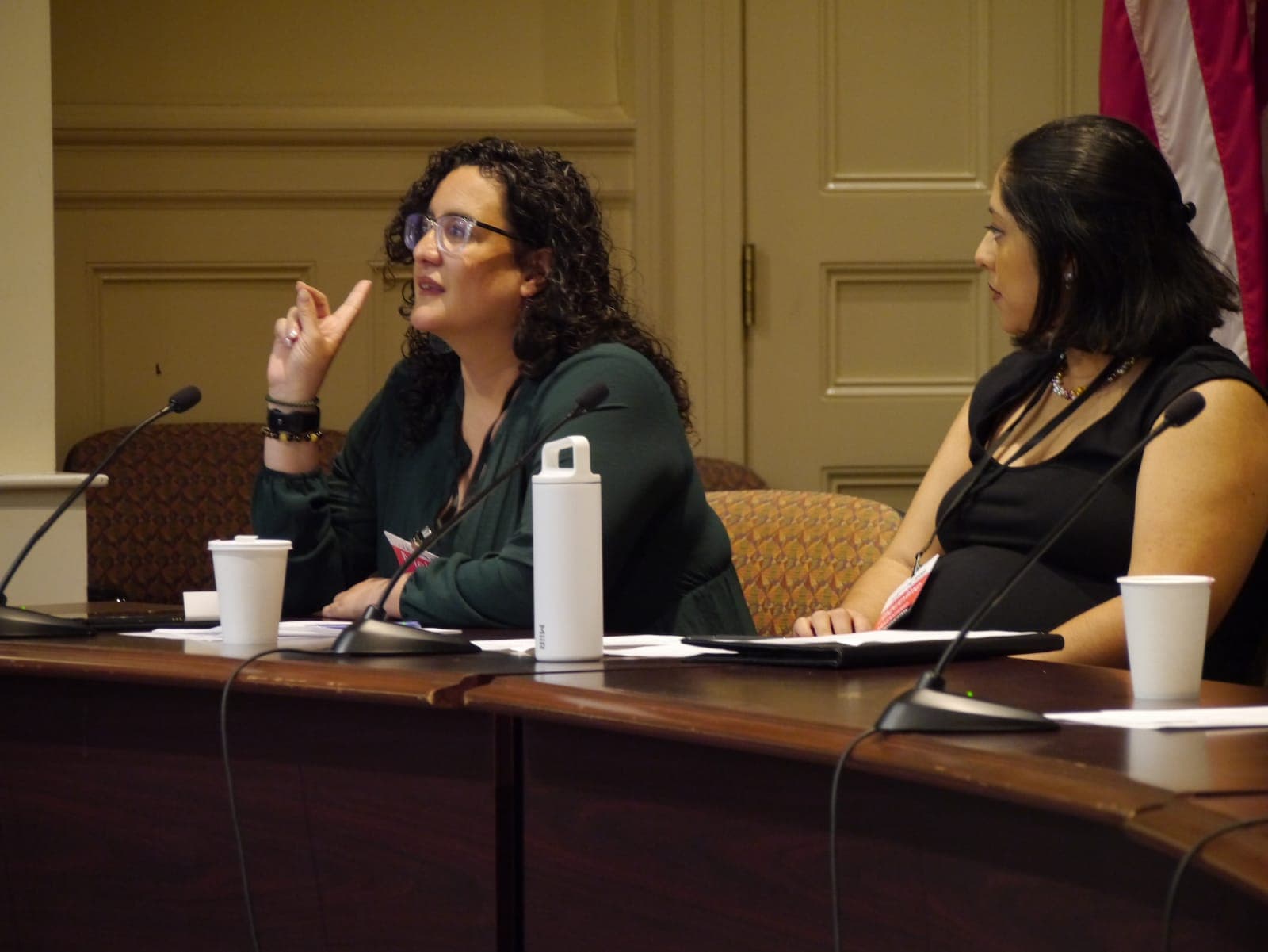
By Yawu Miller
- A new report from the groups We Are ALX, the Massachusetts Taxpayers Foundation and the State House News Service is calling on policy makers to support programs and services that help the state’s 944,000 Latinos become more competitive in the state economy.
State policymakers have long known that Latinos represent the fastest-growing ethnic group in Massachusetts. With eight in ten new Massachusetts residents identifying as Latino, the growing demographic has offset outmigration from the state over the last decade.
A new report from the groups We Are ALX, the Massachusetts Taxpayers Foundation, and the State House News Service is calling on policymakers to provide targeted support to programs and services that help the state’s 944,000 Latinos become more competitive in areas including education, job training, and business ownership.
“Latinos are an economic engine that is untapped,” said Eneida Roman, president and CEO of We Are ALX, the group formerly known as Amplify Latinx. “We are not just the present workforce, we are the future workforce.”
While Latinos represent 13.5% of the Massachusetts population, over the last nine years, they have accounted for 26% of the growth in the state’s gross state product — a measure of the market value of goods and services produced — according to the report. Yet Latinos face a variety of challenges that impact their earning ability: lower high school and college graduation rates, lower wages, and less family wealth than white Massachusetts residents, with median net worth at $9,373 compared to $360,455 for whites.
Solving the challenges facing the Latino community will help boost the state’s economy, said Doug Howgate, president of the Massachusetts Taxpayers Foundation — a business-funded public policy organization.
“When you’re talking about the future of the Massachusetts economy, when you’re talking about how Massachusetts is going to position itself to succeed, you’re talking about your fastest-growing demographic, your youngest demographic, and the demographic that over the last ten years has made such incredible gains in things like higher education attendance, entrepreneurship, and engaging new sectors of the workforce,” he said.
The report calls specifically for programs and policies that its authors say would help Latinos to advance educationally and professionally and build family wealth. Governor Maura Healey’s 2024 Mass Leads Act, for example, includes a nearly $4 billion bond authorization for policy provisions including a pathway for foreign-trained physicians to become licensed in the state, investments in developing the ClimateTech sector workforce, and policies making it easier for micro businesses to qualify for state programs.

Panelists who spoke during last week’s forum stressed the importance of specific policies they said could help Latinos have better educational and career outcomes.
Jacqueline Monterroso, Director of Policy and Advocacy for Latinos for Education, said the state and individual school districts need to devote more resources to bilingual education and to recruiting a more diverse teaching force.
Jerry Rubin, an Eastern Bank Foundation fellow and former president of the job training program JVS Boston, stressed the importance of investing in adult English language learner programs.
“Most people who are learning English are doing so so that they can get better jobs,” he said, noting that waiting lists for such programs have gotten longer in recent years.
“In my city, we have waitlists in the hundreds,” added Rep. Andy Vargas, whose 3rd Essex District includes most of Haverhill.
Xiomara DeLobato, Vice President of the Western Massachusetts Economic Development Council, cited legislation that in 2023 set aside $1 million for a pilot project to freeze public benefits for recipients who exceed income guidelines. Typically, when benefits recipients are given a pay increase or have an opportunity to apply for a better-paying job, they face the dilemma of losing benefits, the value of which often exceeds that of their pay increase.
DeLobato said freezing benefits better enables recipients to climb the economic ladder.
“It’s a solution to a major problem,” she said.
Melissa Colón, an Assistant Professor at the College of Education and Human Development at the University of Massachusetts Boston, said policymakers need to support Latino college students, who are less likely to complete college than their white peers.
“We need to lean into inclusion because the Commonwealth of Massachusetts and the U.S. — our economic survival is contingent on our being inclusive,” she said.
The Vamos Massachusetts report is available on the Massachusetts Taxpayers Foundation website.







